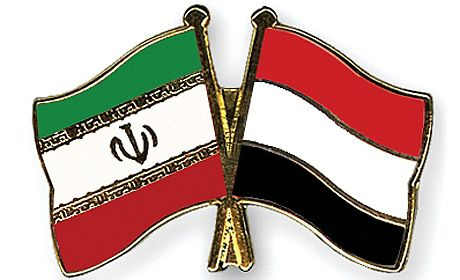The Benefit for Yemen’s Muslim Brotherhood in Opposing Iran

The Houthis and the Shiites of northern Yemen started their activities against the government of this country almost ten years ago, during the presidency of Ali Abdullah Saleh. At a certain stage, these movements expanded to the point where the Yemeni regime at the time entered a conflict with the Shiites of this province. This issue even led to the interference of the Saudi Arabian army.
One of the propaganda means against active political groups inside the country is to affiliate them with foreign countries. In the Yemeni regime as well, the government attempted to affiliate them with regional movements, especially the Shiite movement and the Shiite world, particularly Iran, in order to prepare the ground for the suppression of the Houthis. Of course, the government based these accusations on the inclinations of some of Houthi leaders and their attitudes towards Twelver Shiites. It is said that many Yemeni Shiites have converted from Zaydi Shiism to Twelver Shiism. On this basis, religious teachings in these regions were sometimes rooted in Shiism in Iran. Therefore, what happened in the cultural scene which led to the creation of relation between the Shiites of the region, was considered a type of interference. But the truth of the matter was that no interference had happened; there was no military or political intervention; there was only a cultural relation which normally exists among all religions and all people. It must be noted that this measure was taken by the Yemenis and not the Islamic Republic of Iran.
But as the Hezbollah in Lebanon succeeded in its war against the Zionist regime, and the government in Iraq was formed with a Shiite majority, the Houthis in Yemen were put under more pressure. This pressure was related to these two important and big successes of Shiites in the region. It must be noted that basically whenever the Shiites were the minority, their spirits were higher, as the Houthis' spirits became stronger when the Shiites gained victory in other regions. On this basis, Ali Abdullah Saleh suppressed the Shiites and Saudi Arabia helped the previous Yemeni government. Of course, Saudi Arabia's motivation in helping the government of Yemen suppress the Shiites was mostly due to its concerns with regard to its domestic problems. Nevertheless, this bloody suppression led to the annihilation of this cultural movement.
But what is happening at the present time is that a totalitarian regime has been toppled and the interim government has to open the atmosphere for various parties. Therefore, there are more opportunities for the Houthis to be active in this regard. Now the Houthis have a winning card in that they have seriously struggled against Ali Abdullah Saleh and those with these kinds of backgrounds can show off their righteous positions. Now, in order to pressure this group and limit their activities, the government has again resorted to its previous method of affiliating this cultural movement with foreign countries. Therefore, they have suggested espionage in the absence of any evidence or reasons. It must be noted that this issue was first raised by the government of Yemen, and it is now being repeated by the Muslim Brotherhood. It should be pointed out that the Muslim Brotherhood in Yemen is a very small and newly-founded group, for there had not previously been an open atmosphere in Yemen for activities. The reason for it taking such a stance against Iran should be evaluated alongside its domestic goals in Yemen. These people intend to use this issue to both become popular inside the country and also gain the support of Muslim Brotherhood groups in other countries. The other point which must be considered is that, with this position, the Muslim Brotherhood is placed next to Abdrabbuh Mansour Hadi, the current president of Yemen. This is while the people in Yemen still do not consider the current president to be legitimate and strongly disagree with him. On this basis, this position can lead to negative consequences for this group. The Muslim Brotherhood in Yemen must now attempt to fight against the serious interferences of Saudi Arabia.
The first time that the issue of Iranian spy networks in Yemen was mentioned, was by the Yemeni president at the Woodrow Wilson Institute in the US. The nature of lecturing in such institutes shows the inclination of the government of Yemen. Iran has given a clear response in this regard, stating that Yemen has not presented any document to prove its claims. But it seems that domestic groups use these issues in order to achieve their goals and the government of the Islamic Republic of Iran must naturally not react to this matter.

